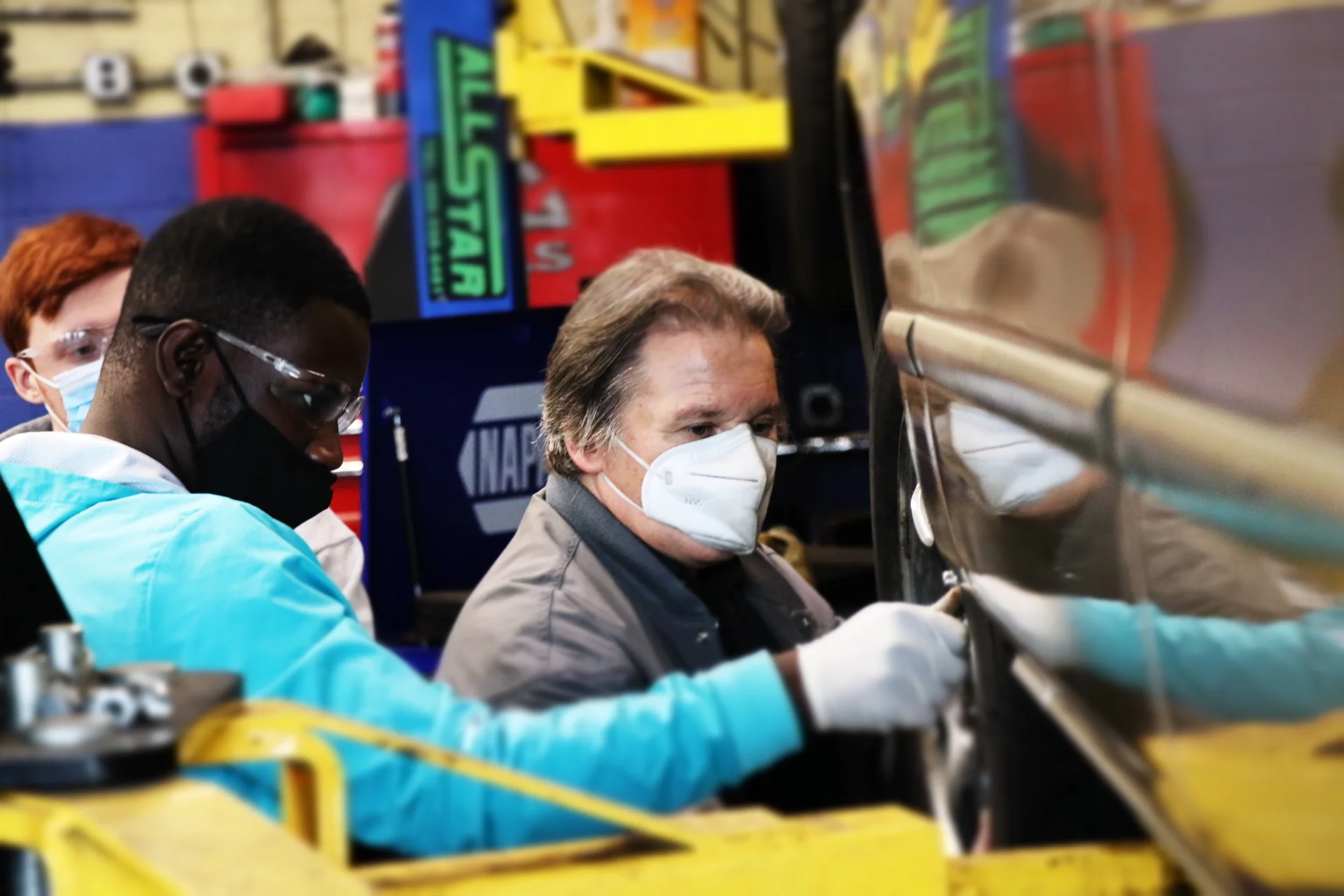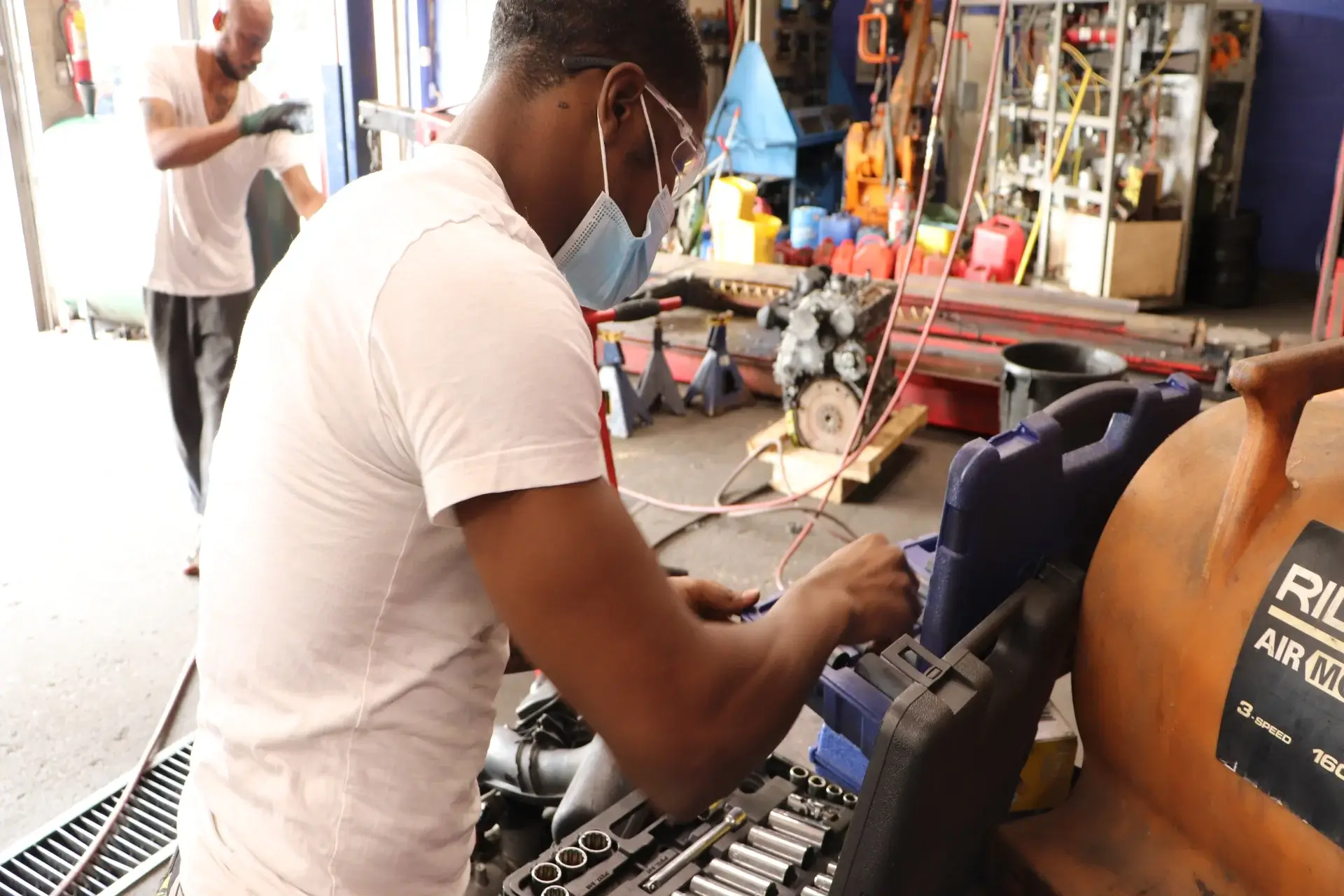Careers That Make You Stand Out Of The Crowd
If you yearn for a career path that does not mandate four years of college and that exuberant amount of fees yet provides you with a satisfactory salary and a dignity at work, a career in trades might be the ideal option. Labour jobs that require a certain skill set or training are categorised as skilled trade careers. Many trades careers provide on-the-job training that allow you to hit the ground in less than just two years. Among the several categories of career in trades, jobs include mechanics, plumbers, welders and paramedics.
A booming career that the trade industry offers can be guessed from the amount of salary tradesmen receive annually. You will be taken by surprise! According to the Bureau Of Labour Statistics, the median annual salary of an automotive technician and mechanic was $44,050 in May 2020! Isn’t that amazing! A skilled trade occupation however requires a particular skill set, knowledge, and ability to excel in the trade.
Building Trades
Building trades comprise a variety of construction jobs, that includes carpentry, masonry, flooring, and plumbing. If you wish to begin working really soon and have some basic skills, you can easily land up a job as a painter, carpet installer, or landscaper with very little training or experience.
Just as you continue learning trades, you can even decide to open up your own company or move into a larger firm. If you want to become an electrician, a plumber, a pipe fitter or a welder, you will have to register to a vocational school and complete the required certifications training therein.
Mechanical Trades
Most mechanical trades oblige a certification of competency which spans two qualification levels. The very first level is known as the journey level which requires an apprenticeship to gain the necessary experience. The second level is called the master level. You need to work as a journeyman for a minimum of 1 year in order to take a competency test and become a master.
Achieving a college degree or taking classes at a trade school provides additional knowledge and skills required in the trade jobs, but it is possible to become extremely certified only through job training or an apprenticeship. What would help pave the way is to work as an assistant in a mechanical trade when you are in high school. You can also network with mechanical experts to gain success in your career. These trades consist of Auto mechanics, Machinist, HVAC installer, Mechanical drafter, Elevator mechanic, Locksmith, Mechanical insulator, and Mechanical installer.

Industrial Trades
Industrial trades comprise jobs that deal with manufacturing and technology. This industry involved problem solving, designing, and building. A high school diploma is generally the basic requirement, but special skill set, previous work experience and certified technical education will give you a career that makes you stand out of the crowd. Like other trade professions, an apprenticeship can lend you an entrance into the industrial trade field.
If hired for the internship, you can finalize your apprenticeship requirements while employed. Laboring in an industrial trade job furnishes a shot for advancement. You can get promoted to a supervisory or foreman position after gaining proper and adequate experience. These comprise Steam engineer, line installer, Cargo freight agent, Ironworker, repairer, equipment operator and Metal fabricator.
Medical Trades
You don’t necessarily have to be a doctor or a nurse in order to work in the health-care sector. A certificate program or a two year degree from a vocational college will help you get ready to work in a variety of health-care related skilled trade jobs.
For example, if you want to become a radiologist or a dental hygienist, it requires 2 years of college education. In 2016, the Bureau of Labor Statistics predicted that both the positions have a potential earning of $50,000 per annum.
Becoming an ultrasound technologist or a certified nursing assistant requires only a certificate program as the basic requirement. Medical trade positions are widely accessible and they offer great benefits, along with competitive salaries. These comprise Dental assistant, Phlebotomist, Paramedic, Respiratory therapist and Clinical laboratory technician.

Skilled Trades Career Benefits
Career benefits in skilled trades stem from the fact that a significant scarcity of skilled trade workers is being experienced all across the United States. Since the past many decades, the gap between the need for skilled trade laborers and their supply has been growing in the United States and other countries. According to Forbes, there are more than 3 million skilled trade duties that would remain open by 2028. This implies that the trade jobs will proceed to be in high demand for many years to come.
Because the demand for skilled trades workers is much greater than their supply, skilled trade careers offer great pay along with a long-term job stability which are the two most critical factors for the maintenance of overall quality of life and one’s career satisfaction.
Conclusion
It’s no secret that skilled trades work is often surrounded by a stigma. But there are tons of misperceptions about these jobs. The reality says that a career in trades implies learning valuable skills that offer less debt, job stability, lucrative pay, and overall good quality of life.
Tags: Learning trades, Skilled trade jobs, Skilled trades, The trade jobs